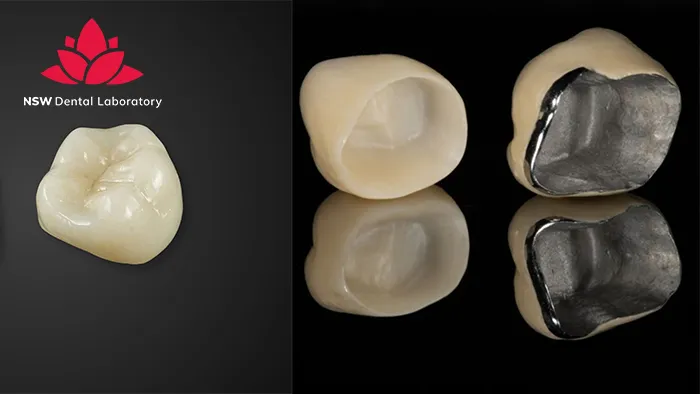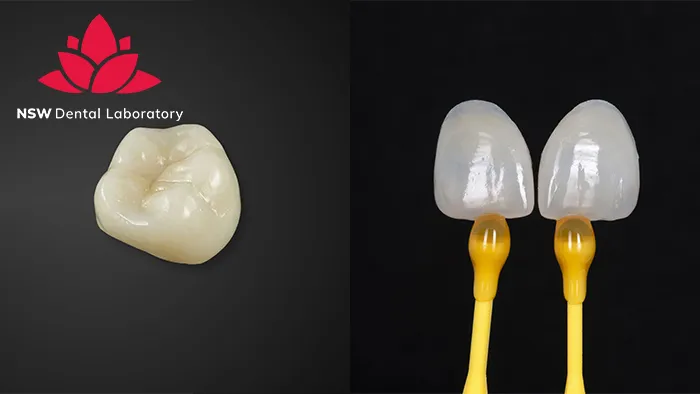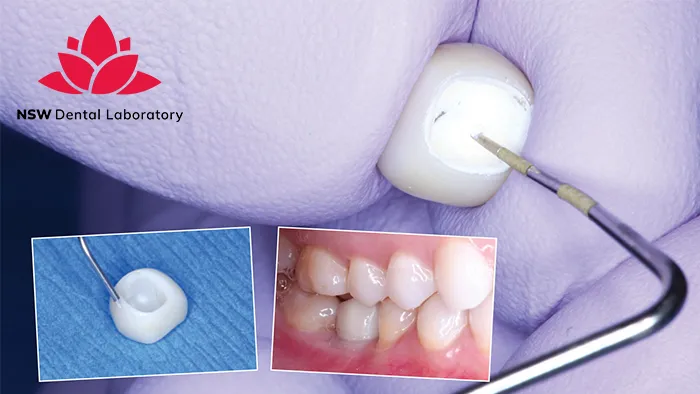A Comprehensive Guide To Different Types Of Dental Crowns
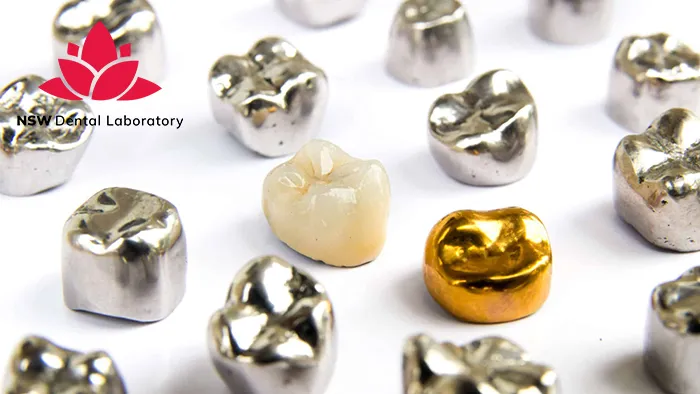
What Is Dental Crowns?
A Dental crown is a cap-shaped restoration placed over a natural tooth. It is designed to fit snugly over the entire tooth, providing strength and protection while improving the tooth’s appearance. Dental crowns are indicated in cases of tooth decay, fractures, weakness, wear, or discoloration. Additionally, they are used to cover dental implants or to support dental bridges. Dental crowns can be made from various materials such as metal, resin, porcelain, or zirconia and are often fabricated using advanced techniques. With proper care, a dental crown can last up to 15–20 years.
With the advancement of science and technology, more Types of Dental Crowns have been developed, offering outstanding advantages that provide both dentists and patients with a wider range of options for smile restoration. In this blog, we will explore the different types of dental crowns, along with their advantages and disadvantages, to help you make the best choice for your specific dental condition.
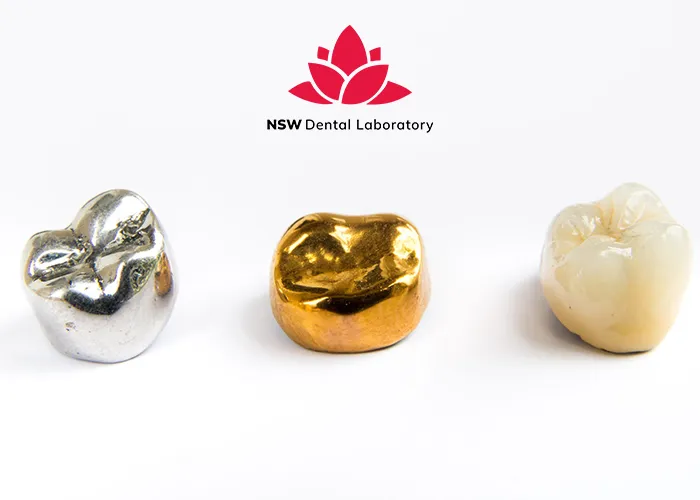
When Would You Need A Dental Crown?
There are various methods for restoring minor tooth damage, such as inlays/onlays, veneers, and fillings. It is essential to understand the appropriate treatment for each type of tooth damage. With numerous types of dental crowns available to restore damaged natural tooth structure, Understanding when to consider types of dental crowns is crucial to maintaining optimal oral health.
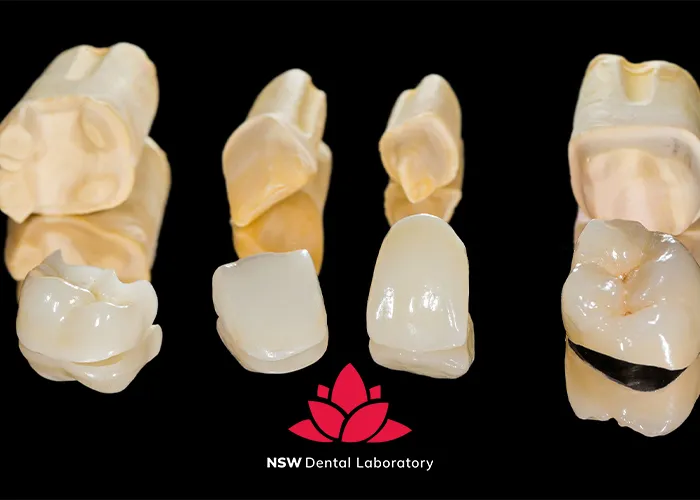
- Root Canal Treatment (RCT): After the root canal, the tooth becomes brittle and may break under biting pressure. Thus, a dental crown is commonly recommended to protect the treated tooth and prevent more damage to the tooth structure.
- Cosmetic Enhancement: For teeth with severe discoloration, deformities, or staining that cannot be effectively addressed with veneers, dental crowns are the most aesthetic and suitable option.
- Significant Tooth Decay: Significantly decayed teeth that lose a lot of natural tooth structure become susceptible to future fractures if not restored properly. Fillings or porcelain onlays may not obtain proper retention to provide long-lasting results. In a case like this, the dentists may recommend placing a dental crown over the weak tooth.
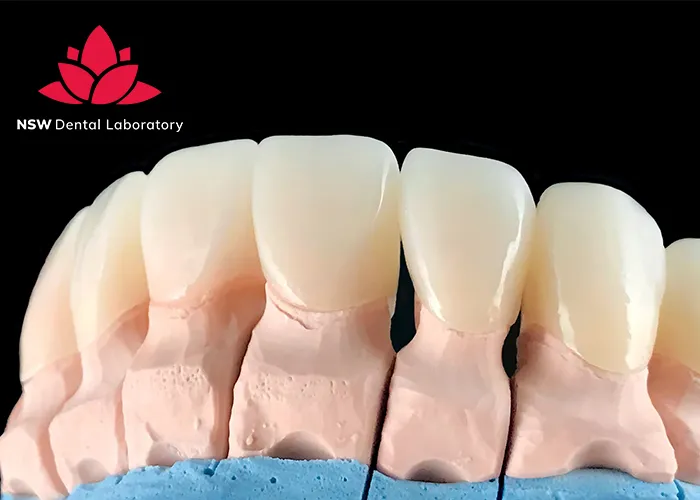
- Broken Tooth or Cracked Tooth: Sometimes severely broken tooth can be missing more natural tooth structure than it has remaining. Here, dental crowns can provide structural support to this weak tooth and replace the missing tooth structure to its full functionality.
- Implant Crown Restoration: Dental crowns are utilized to restore teeth that have been replaced with dental implants, providing a natural-looking and functional replacement.
- Support for Dental Bridges as Abutment teeth: Dental crowns serve as anchors for dental bridges, helping to replace missing teeth and restore a complete, functional dental arch.
- Replacing Old Crown: If there is an old dental crown that needs to be replaced due to fracture, decay, or cosmetic reasons, a new crown is the only replacement option.
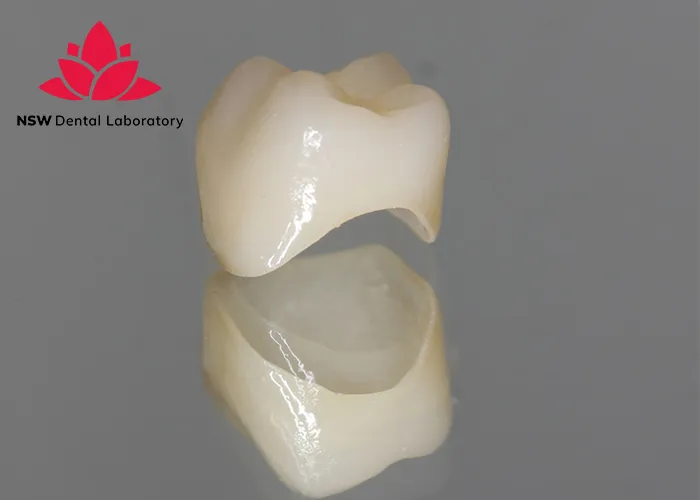
5 Types Of Dental Crowns
Metal Crowns
Metal crowns are one of the oldest types of dental crowns available. Made primarily of metals like gold, palladium, nickel, or chromium, they are known for their durability and strength. While they might not be the first choice for those looking for a natural appearance, they are often used for molars hidden at the back of the mouth. Their resilience makes them stand out among the different types of dental crowns.
Pros:
- Metal crowns can withstand biting and chewing forces well and tend not to chip or break, making them an excellent option for molars or back teeth.
- Preparing a tooth for a metal crown requires less removal of the natural tooth structure compared to other types.
- They often last longer than other types of dental crowns, potentially saving money over time.
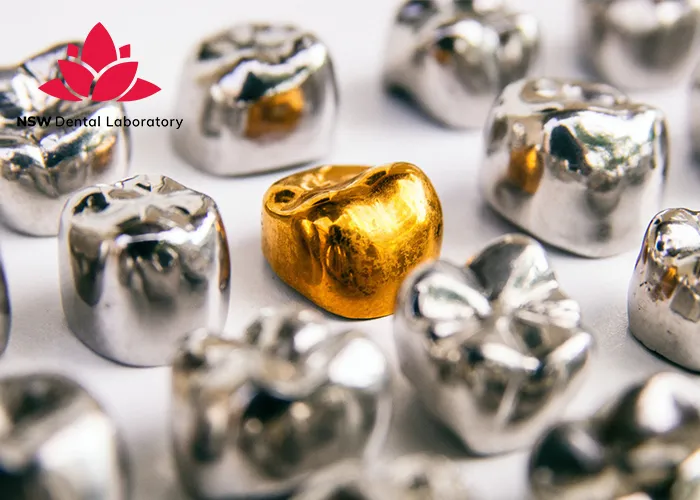
Metal Crown
Cons:
- The metallic color of these crowns doesn’t match natural teeth, making them more noticeable and less ideal for front teeth.
- Some people may have or develop an allergic reaction to the metals used in these crowns.
Porcelain Fused To Metal (PFM)
PFM crowns are a hybrid between metal and porcelain crowns. They combine the strength of metal with the aesthetic appeal of porcelain. These types of dental crowns offer a balance between durability and appearance, making them a popular choice among different types of dental crowns available.
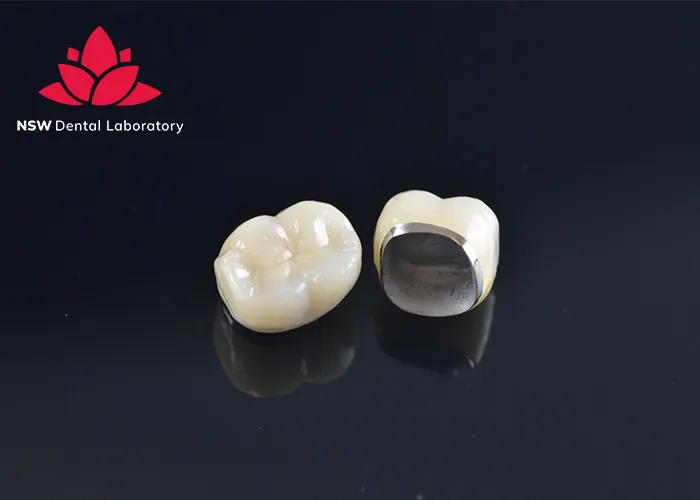
Porcelain Fused To Metal (PFM)
Pros:
- PFM crowns are known for their strength and longevity. The metal base provides a sturdy foundation, while the porcelain layer mimics the natural tooth color.
- They often come at a more accessible price point compared to other options.
- Suitable for both front and back teeth.
Cons:
- While porcelain offers a natural look, the metal base can sometimes show a dark line at the gum margin, the tooth might still look duller and less translucent than its neighbors.
- Less durable than metal crowns, the porcelain part of porcelain crowns can chip or break under strong biting forces.
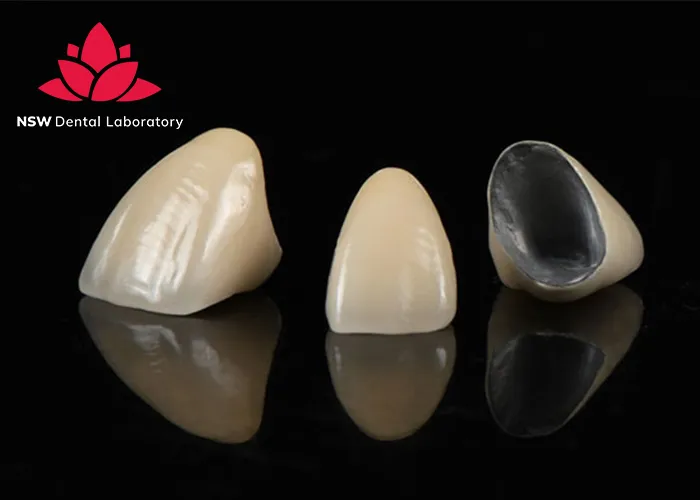
Porcelain Fused To Metal (PFM)
Zirconia crowns
Zirconia crowns are a materials relatively newer addition to types of dental crowns. Made of zirconium oxide, they are extremely durable and offer a natural appearance. Their strength and aesthetics make them stand out among different types of dental crown materials.
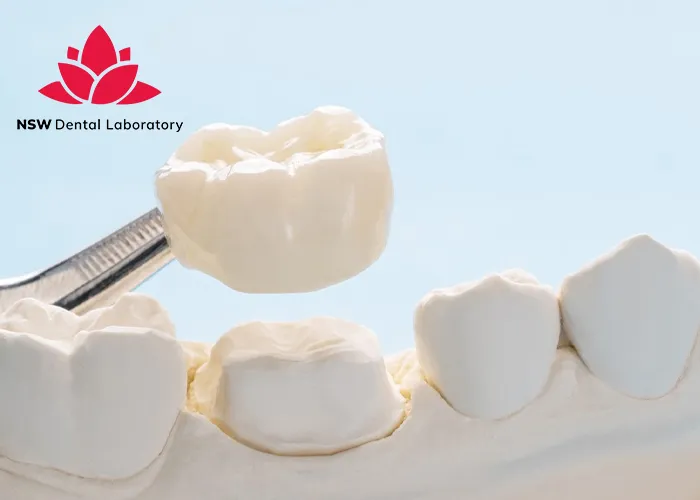
Zirconia Crowns
Pros:
- Zirconia crown is a safe option for patients with metal sensitivities.
- They are extremely strong and can withstand the forces of chewing, making them less likely to crack or chip than porcelain.
- They Can match the color of your natural teeth, providing a seamless look nearly indistinguishable from real teeth.
- Less abrasive to adjacent natural teeth than some other crown materials, preserving the health of your entire mouth.
- Due to their strength and resistance to staining, zirconia crowns often have a long lifespan.
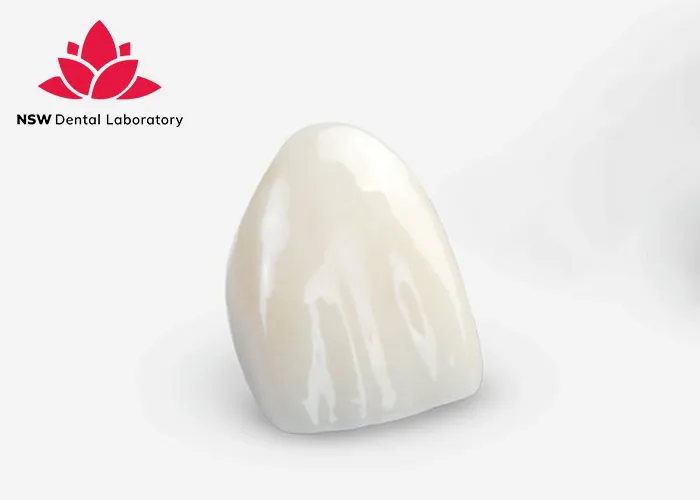
Zirconia Crowns
Cons:
- Zirconia crowns can be more expensive than other types due to the high-quality material and the technology required to craft them.
- Once a zirconia crown is made, adjusting the fit or color is complex, requiring precise measurement and matching before the final manufacturing process.
Porcelain Crowns
All-porcelain crowns, like all ceramic crowns, offer a high degree of natural appearance. They are one of the dental crown types that are both biocompatible and resistant to temperature changes. Their aesthetic appeal makes them a favorite among different types of dental crowns.
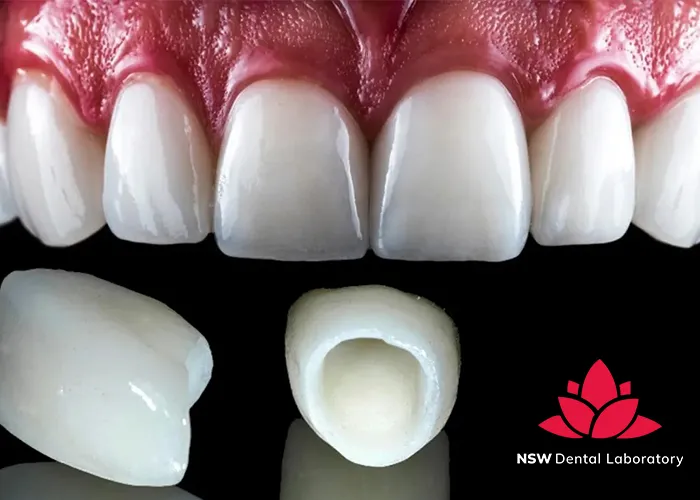
Porcelain Crowns
Pros:
- Porcelain crowns are a good choice for front teeth because they can be matched to your natural tooth color and blend in seamlessly.
- They are resistant to staining, allowing you to maintain a bright white smile.
- They are metal-free, which is beneficial for people with metal allergies.
Cons:
- Porcelain crowns can be more prone to chipping or cracking than metal or porcelain-fused-to-metal crowns.
- They can cause more wear on the opposing teeth than metal crowns.
- They can be more expensive than other types of dental crowns due to the material and expertise required to create a crown that looks natural.
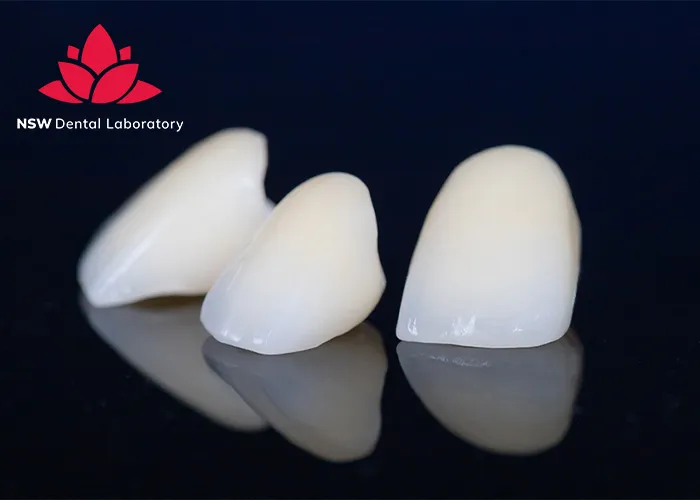
Porcelain Crowns
All Resin Crowns
All-resin crowns are among the more affordable dental crown material types. Made entirely of composite resin material, they provide a natural appearance but might not be as durable as some of the other different types of dental crown materials. They are a good option for those on a budget.
Pros:
- More affordable than other dental crown types.
- Less invasive procedure. Easy to adjust.
- Natural appearance.
Cons:
- Less durable, prone to fractures, and can wear down over time.
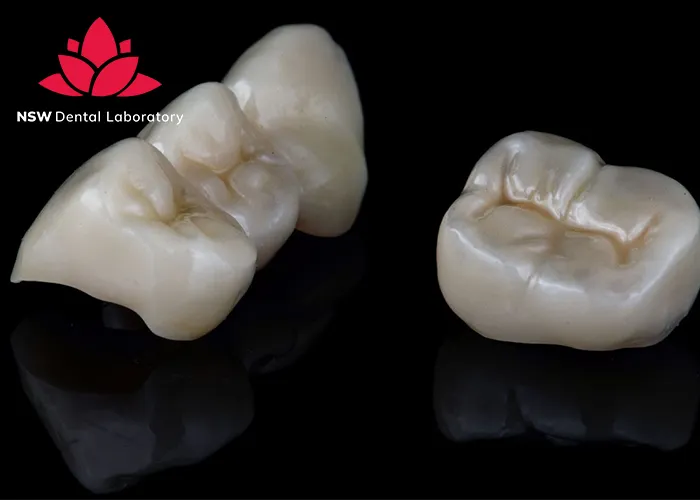
All Resin Crowns
Conclusion
Dental crowns are a versatile and effective solution for restoring damaged teeth. Whether you need a crown for a front tooth or a molar, understanding the different types of dental crowns can help you make an informed decision. If you are considering dental crowns, consult with your dentist to determine the best option for your dental needs.
Alternatively, consider selecting a high-standard digital dental laboratory equipped with advanced CAD/CAM technology and digital scanning systems to assist in designing and fabricating porcelain crowns. This ensures the best possible results while allowing patients and dentists to collaborate on the crown’s design, including its shape, size, and color, based on the patient’s preferences and satisfaction.
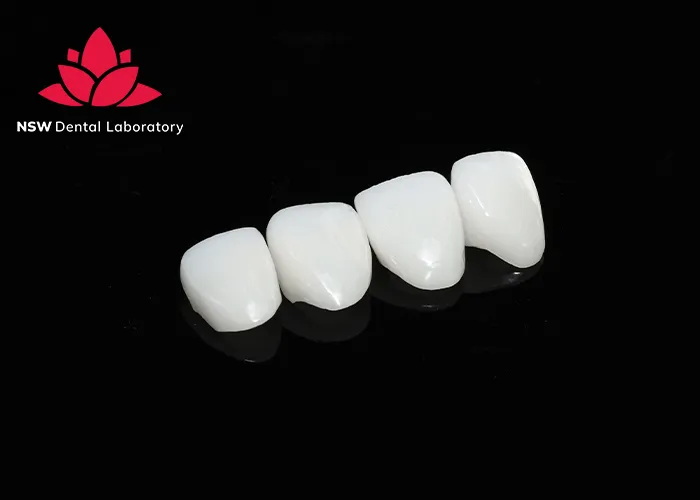
NSW Dental Lab is a leading dental laboratory offering a diverse range of high-quality dental crowns and modern technology, ready to meet your highest expectations.

